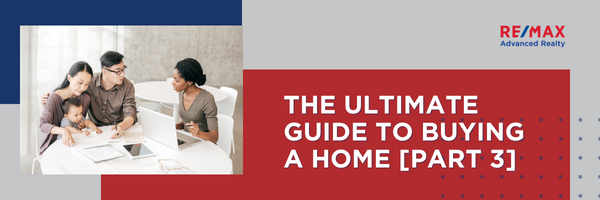Buying a home is a huge decision, making it a lot more intimidating if you’re a first time home buyer. In our previous articles, we’ve discussed the basic things, such as the questions you should ask yourself before buying a property and the daunting process of purchasing a home.
Now, we’re going to talk about the things that come after the buying process. As a first time home buyer, this ultimate guide to buying a home will definitely help to avoid feeling overwhelmed.
But first, what defines a first time home buyer?
A first-time home buyer is someone who matches any of the following criteria, according to the U.S. Department of Housing and Urban Development (HUD):
- A person who has not owned their primary residence in the past three years. If the spouse meets the requirements listed above, they are also regarded as first-time homebuyers. You can buy a place together as first-time homebuyers if you've owned a home but your spouse hasn't.
- A single parent who only had a joint owned property with a spouse when they were married
- A former stay-at-home parent who has only co-owned a home with a partner
- A person who, in line with applicable legislation, has only ever possessed a primary dwelling that is not firmly anchored to a permanent foundation.
- A person who has only ever owned a property that did not adhere to state, local, or model building codes—and that cannot be brought into compliance for less than the price of building a permanent structure
Moving To Your New Home
The deal is now closed and you can now move to your new home. The daunting part of buying a property is now over, or so it seems.
There are still a few things to consider to make your experience as a new homeowner worthwhile.
1. CONTINUE SAVING
Even when you’re done with the daunting process of buying a home, saving money should never stop. Being a homeowner entails significant unforeseen costs, such as fixing the gutters or purchasing a new water heater. Create a home emergency fund so you won't be caught off guard when these expenses eventually come up.
2. CHECK YOUR HOME REGULARLY
Consider your property as an investment; therefore, you should be sure to take exceptional care of it. Regular maintenance enables problems to be repaired when they are small and manageable, lowering your repair expenses.

3. DISREGARD THE HOUSING MARKET
Unless you decide to sell it, it doesn't matter how much your house is currently worth. The main factor in determining whether you will realize a healthy return on your investment is your ability to select when you sell your property, as opposed to being compelled to do so because of a job transfer or financial hardship.
4. DO NOT RELY YOUR RETIREMENT ON SELLING YOUR PROPERTY
Even if you already own a property, you still need to keep funding your retirement savings. There’s no guarantee that you’ll get financial success when you sell your property even if you see people making billions when the prices of homes increase due to the huge demand.
Keep in mind that the money you used to pay your mortgage each month can be utilized to cover some of your living and medical expenses in retirement if you plan to use your home as a source of wealth in your golden years.
Final Notes
Buying a home is a stressful yet fulfilling process. It won’t be easy even with all the tips you get online; however, this guide will help you not only find the home of your dreams but also a home you can afford.

